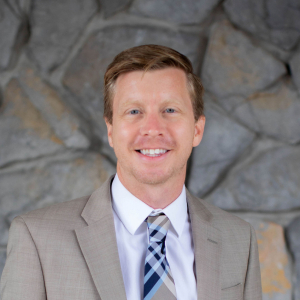In the fourth installment of the six-part blog series highlighting the New York Postsecondary State CTE Leaders Fellowship at Advance CTE sponsored by ECMCF, In-State Fellowship Administrator Tanner Thompson shares the lessons being learned at the mid-way point of the inaugural cohort.
Our aim was clear: cultivate a statewide pipeline of emerging postsecondary CTE leaders by providing them with robust systems knowledge, targeted leadership development, and an expansive professional network.
When we launched New York State’s pilot for the In-State Postsecondary State CTE Leaders Fellowship, with Advance CTE and sponsored by ECMCF (NY Fellowship), we felt confident about our goals. Our aim was clear: cultivate a statewide pipeline of emerging postsecondary CTE leaders by providing them with robust systems knowledge, targeted leadership development, and an expansive professional network. We had a proven national model, enthusiastic fellows, and a supportive infrastructure. However, what we did not fully anticipate were the nuanced complexities involved in leading a fellowship of this scale, especially when professional aspirations intersected with personal realities.
This moment of vulnerability transformed our approach as administrators, prompting Cynthia Thomas and me to recognize the critical importance of understanding and supporting the whole person, not just their professional identity.
Our fellowship’s success has hinged significantly on relationship-building. One of our most powerful tools for this has been the Fellows Spotlight interviews. Initially designed to elevate the fellows’ professional profiles, these interviews quickly became vital opportunities for deeper connection. A particularly memorable moment occurred when one fellow candidly shared their experience of transitioning from industry into education and the impact of imposter syndrome during their early months. This moment of vulnerability transformed our approach as administrators, prompting Cynthia Thomas, assistant professor, State University of New York at Oswego and an adminstrator of the NY Fellowship, and me to recognize the critical importance of understanding and supporting the whole person, not just their professional identity.
This experience affirmed an essential insight for us: effective leadership development hinges not just on the readiness of the individual but on providing the right support precisely when they are needed.
Our fellows bring extraordinary talent and dedication from diverse professional backgrounds, including both traditional postsecondary institutions and adjacent fields. Early on, we observed one fellow struggling to identify how their role fit into the larger landscape of CTE. After we provided foundational insights into the interconnected nature of CTE, their confidence and clarity flourished, significantly enhancing their project and contributions. This experience affirmed an essential insight for us: effective leadership development hinges not just on the readiness of the individual but on providing the right support precisely when they are needed.
[W]e learned that leadership skills development must be accompanied by foundational CTE knowledge…
Initially, we underestimated the value of a comprehensive interview process, believing it might be overly burdensome. However, feedback revealed that both candidates and reviewers preferred more thorough conversations to ensure alignment and mutual fit. Additionally, we learned that leadership skills development must be accompanied by foundational CTE knowledge, such as understanding federal and state CTE policy, funding mechanisms, and the role of career clusters in educational pathways.
While this realization would not have changed our inaugural cohort selection, incorporating this foundational knowledge earlier would have enhanced our early curriculum significantly. We adapted by embedding targeted educational segments into our workshops and providing individualized coaching, strengthening our fellows’ systems-level understanding. These adjustments have refined our fellowship model and underscored our adaptability as administrators.
While initially relying heavily on National Fellowship materials, we gradually found our authentic leadership voice and customized the content to fit our New York context. By the fourth workshop, we were confidently incorporating state-specific perspectives and tailoring sessions to address our fellows’ distinct needs. This shift marked a turning point, positioning us as responsive and innovative administrators capable of adapting national resources to state and local realities.
[S]ometimes timing, not personal capability, influences participation.
Attrition in our fellowship presented another meaningful lesson: sometimes timing, not personal capability, influences participation. Fellows who stepped away did so due to professional growth, promotions, or significant life changes rather than dissatisfaction. We chose to see these departures as opportunities to foster lasting connections, confident these individuals would remain integral contributors to our statewide CTE network. To facilitate ongoing engagement, we are developing robust alumni support mechanisms, including a NY Division of the ACTE Postsecondary, Adult & Career Education (PACE), mentorship roles, and opportunities to reconnect at statewide convenings.
Our fellowship is not only cultivating strong individual leaders; it is creating sustainable bridges for collaboration across institutions and sectors.
Looking forward, we see clearly that the strength of New York’s postsecondary system lies in its connectivity to the broader CTE community. Our fellowship is not only cultivating strong individual leaders; it is creating sustainable bridges for collaboration across institutions and sectors. On a personal level, the experience has profoundly shaped my own understanding of leadership, transitioning from implementing existing models to shaping a responsive, intentional, and impactful approach tailored to our unique context.
To other states considering a similar fellowship model, my advice is clear: Lean into this opportunity fully. Help your fellows see how their roles fit within the larger CTE ecosystem, and invest early in foundational understanding. By doing this, states can build visionary and sustainable leadership pipelines, just as we are successfully achieving in New York.
Interested in developing your own CTE leadership fellowship in your state? Request more information via our request form or contact Dr. Kevin R. Johnson Sr. at [email protected].

